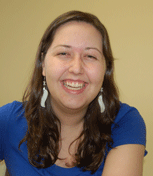It happened less than halfway through our hike in the foothills of the Italian Alps, as we trudged up an increasingly steep trail. “The lens won’t close,” my sister Elizabeth said, panic creeping into her voice as she handed her digital camera to me. I turned it over in my hand and tried to sound reassuring. “I’m sure it’s fine,” I said, hoping the fix would be one I could handle, like replacing the batteries. I stabbed at a few buttons; we tried new batteries. Nothing.
The problem, we realized eventually, was that the camera’s memory card had crashed, freezing the camera and providing a double blow to our morale: not only were we unable to take photos in the midst of the mountains, but hundreds of shots from the previous week—a pilgrimage through Rome, Turin and Assisi—were gone. Only one day of our trip remained, and we were left with little documentation of our travels.
We wrapped my extra T-shirt like a death shroud around the camera, placed it carefully in my backpack and kept walking. I attempted to keep my mind on the images in front of me—a field of cows, an occasional waterfall—and tried to avoid making a mental list of the images we had lost: Elizabeth looking half terrified, half thrilled standing inside the dome of St. Peter’s Basilica; me kneeling by the tomb of St. Ignatius in the Gesù; Elizabeth standing outside the fifth-century walls of Santa Sabina; the two of us in the streets of Assisi in tribute to our brother who couldn’t make the trip, but whose birthday falls on the feast of St. Francis.
A part of me longed for the old, analog camera I used while studying abroad in England during my junior year of college. Back then I often worried about running out of film and/or the money needed to develop it, so I rationed my shots carefully, studying my surroundings to ensure a proper angle and worthwhile subject matter. Even so, I took a couple of hundred photographs over the course of the year. And my careful procedure had the unexpected benefit of making me observant, patient, fully present to my surroundings. After I developed the film, I sorted through the pictures and often found it easy to remember the exact moment I took each one.
A few years later, I finally bought a digital camera and no longer had to worry about conserving film or costs. I could point and click happily, at anything, and soon I was taking twice as many photos in a week or two of traveling as I did during my entire year in England. I realized, however, that I also spent significantly more time looking at the world in miniature on a tiny screen. All of a sudden, it seemed, I had greater difficulty connecting each photo with a specific moment.
But on the day of my camera-less hike in the Alps, I found myself fully absorbed in the shaded trail on which we walked, the views of green hills lit up in the afternoon sun. And, then, over those hills a rainbow, larger and closer than any I had ever seen before. As others scrambled for their cameras, Elizabeth and I stood still. We didn’t have a chance to photograph the view, but we had a chance simply to enjoy it together.
As we made our way out of the hills, my sister and I laughed and joked about the blessings, surprises and absurdities of our trip: the feeling of climbing more than 300 steps and arriving, breathless, at the top of St. Peter’s Basilica; the peace felt when praying with our friend, a Dominican priest, in the very cell where St. Dominic once lived; the kindness of the man who let us into the rooms of St. Ignatius Loyola at a time when they were closed to visitors; the patience of the waiter who translated into English an entire dinner menu for us.
A part of me still mourns the loss of our photos, but I also realize that on any journey, no camera can capture everything worth remembering.









Remember, you can always carry a sketch pad and some pencils. The concentration of drawing the scene will fix it in your mind for future memories and the sketch will be far more precious than any (highly disposable) photograph. This is the way travellers did it a century ago and many of these drawings, however hastily done, are mini-masterpieces.
Sometimes technology causes as many problems as it solves.
Chris